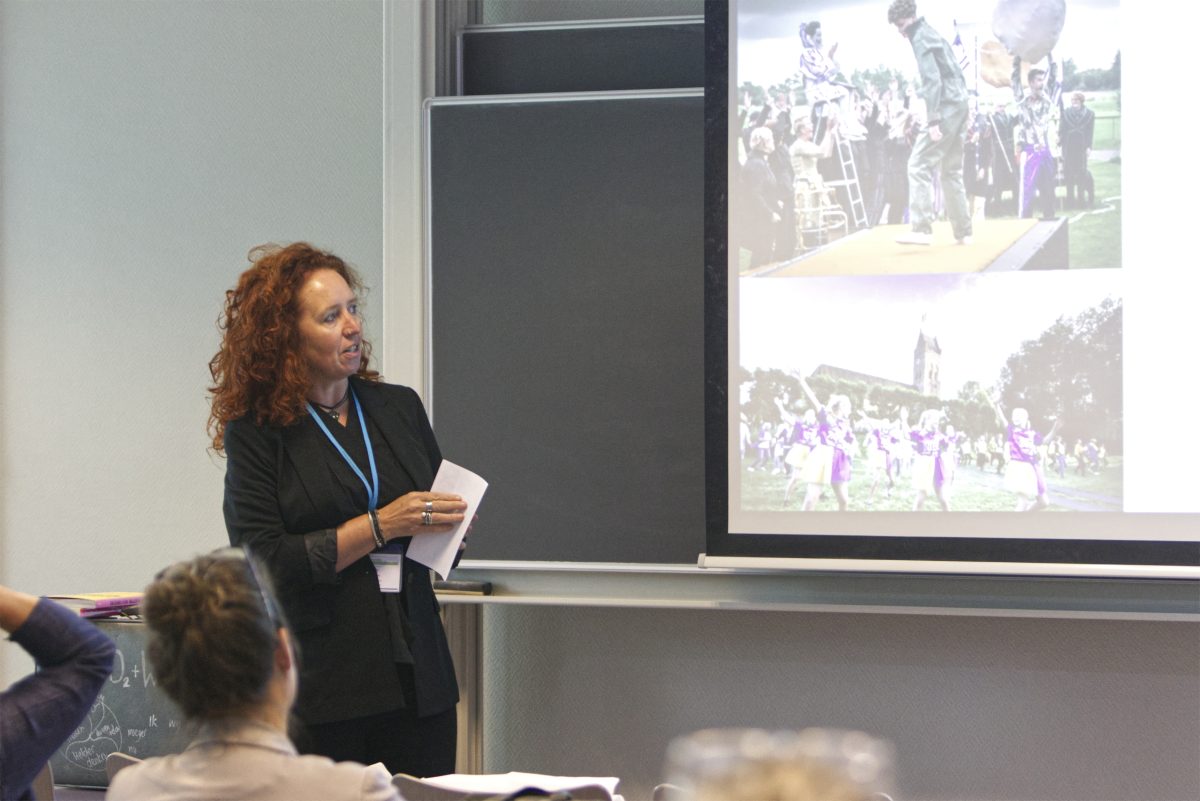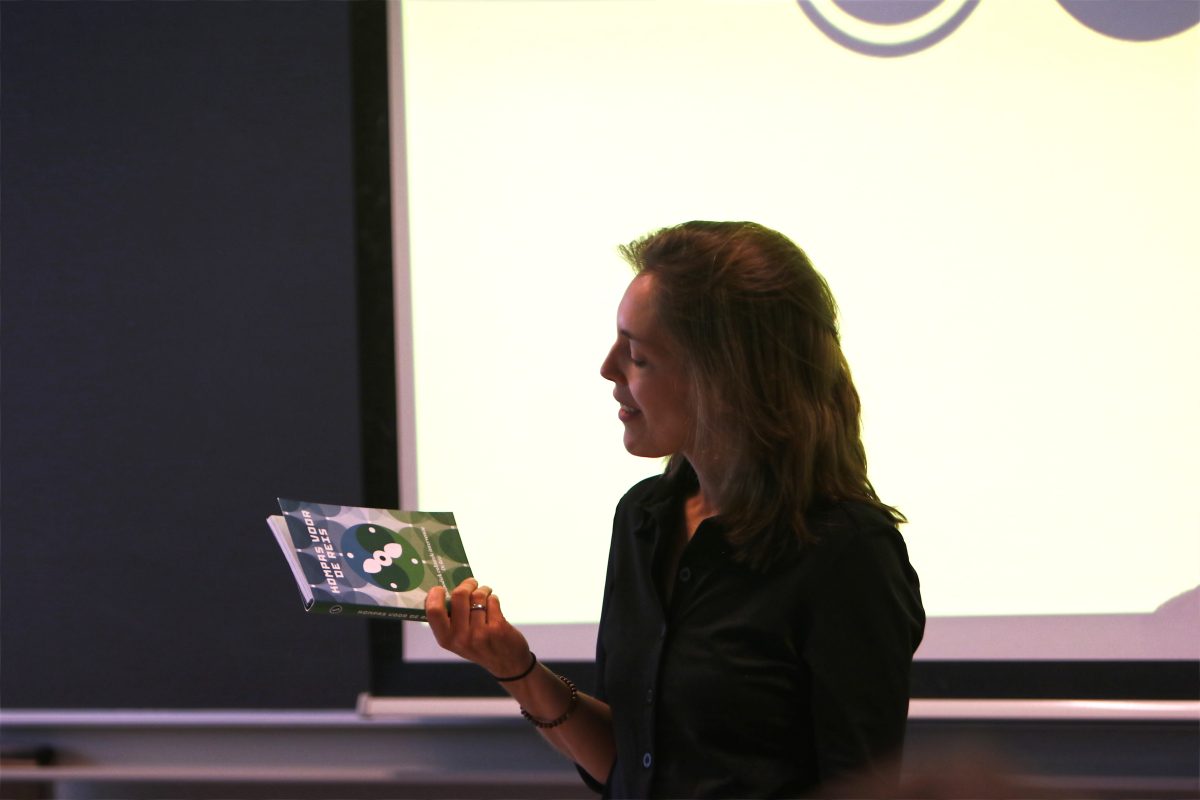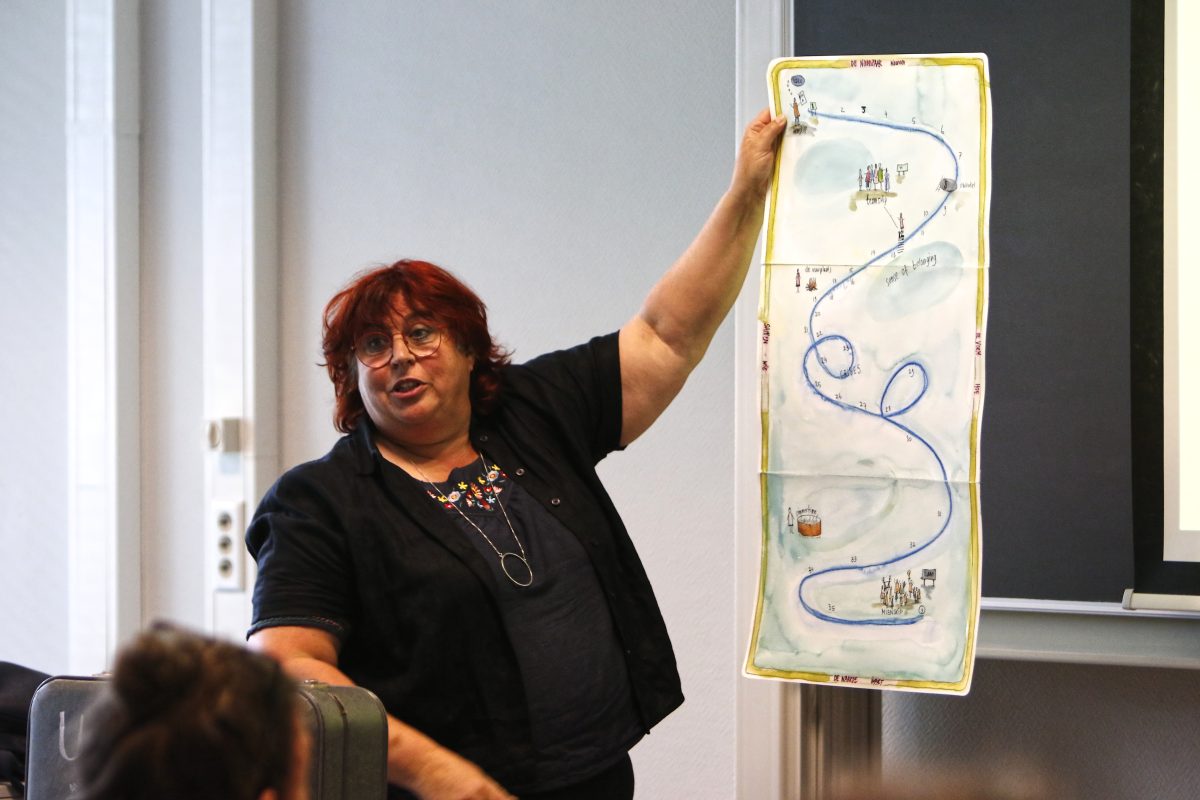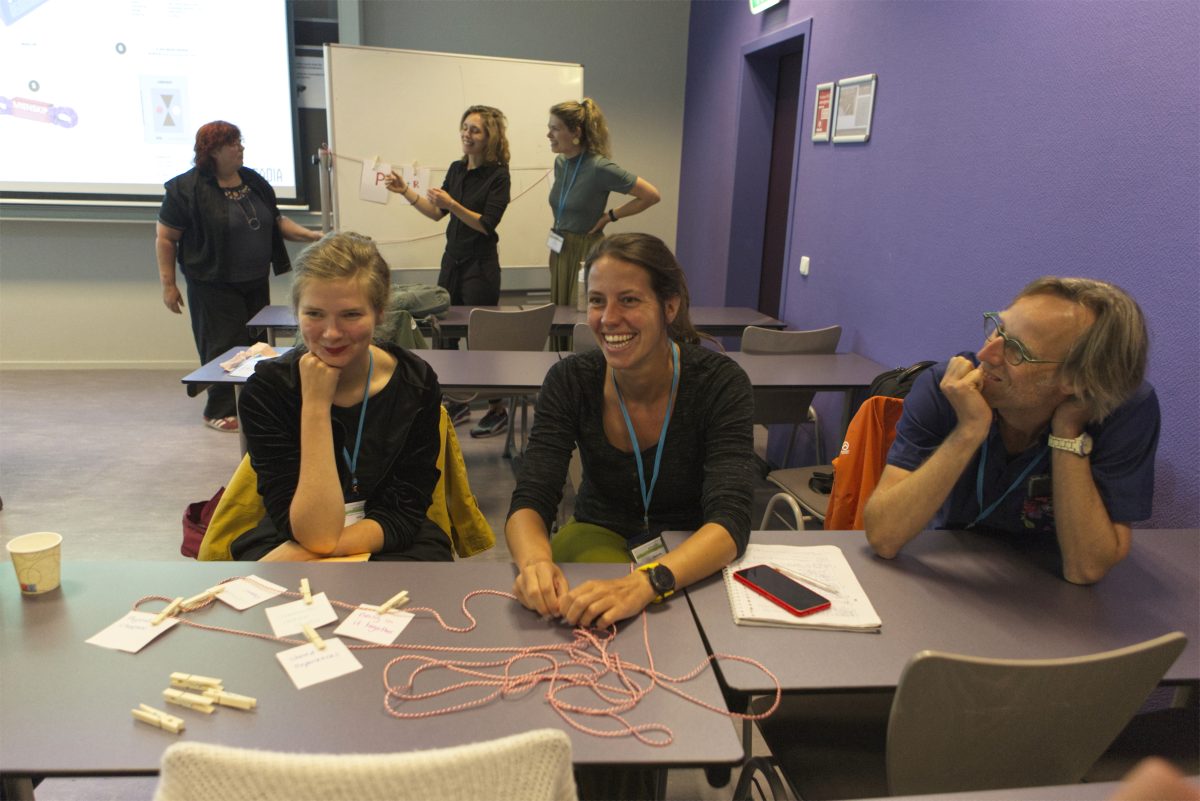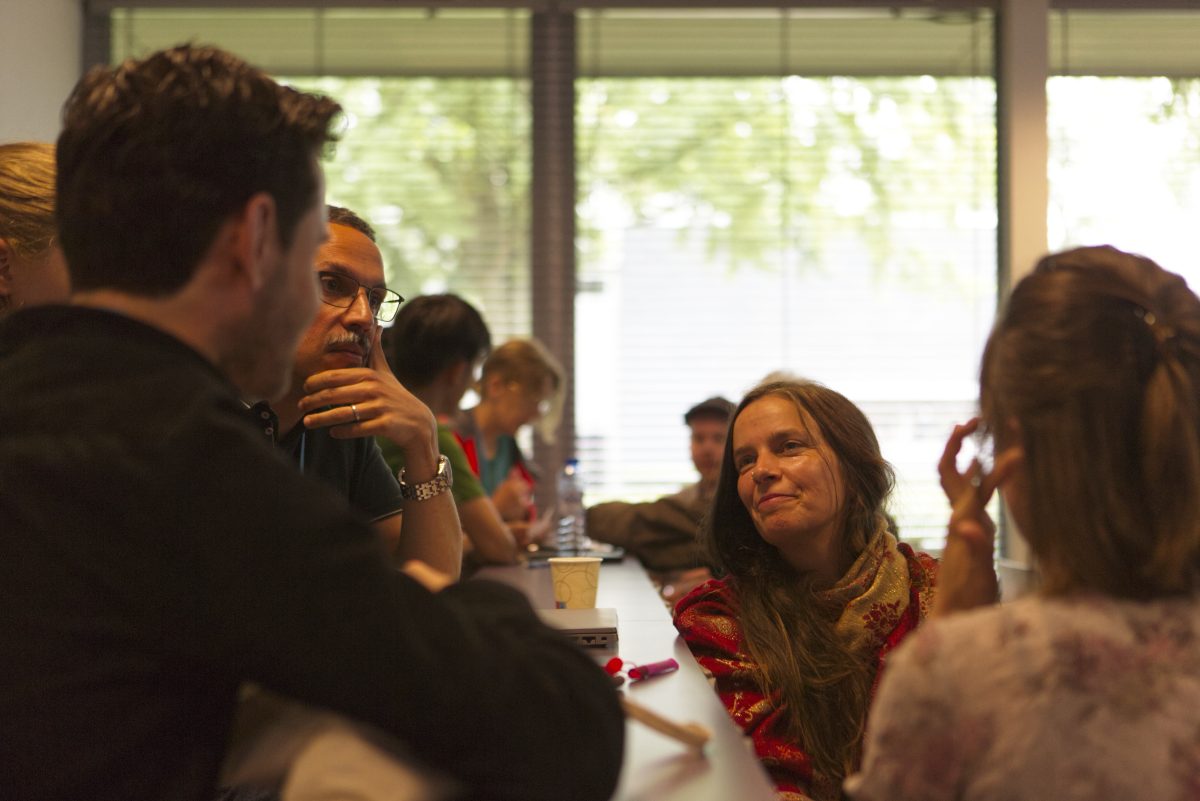The Frisian word ‘mienskip’ means community. What is a community? In fact ‘mienskip’ is more specific than community. It is a local or rural term that may be specific for smaller places further away from a big city. In such communities you have to cooperate in a respectful manner with many different types of people. Furthermore ‘mienskip’ means connection, feeling at home and that everyone does what is necessary for the community. So there is a lot of collaboration. Therefore ‘mienskip’ is about co-creating, working together and getting things done in the community. You could see it as a verb.
A workshop by:
Immie Jonkman – Director Arcadia
Carmen van Bruggen – PhD student
Rozemarijn Strubbe – Advisor cultural participation
Anne Graswinckel – Art educator
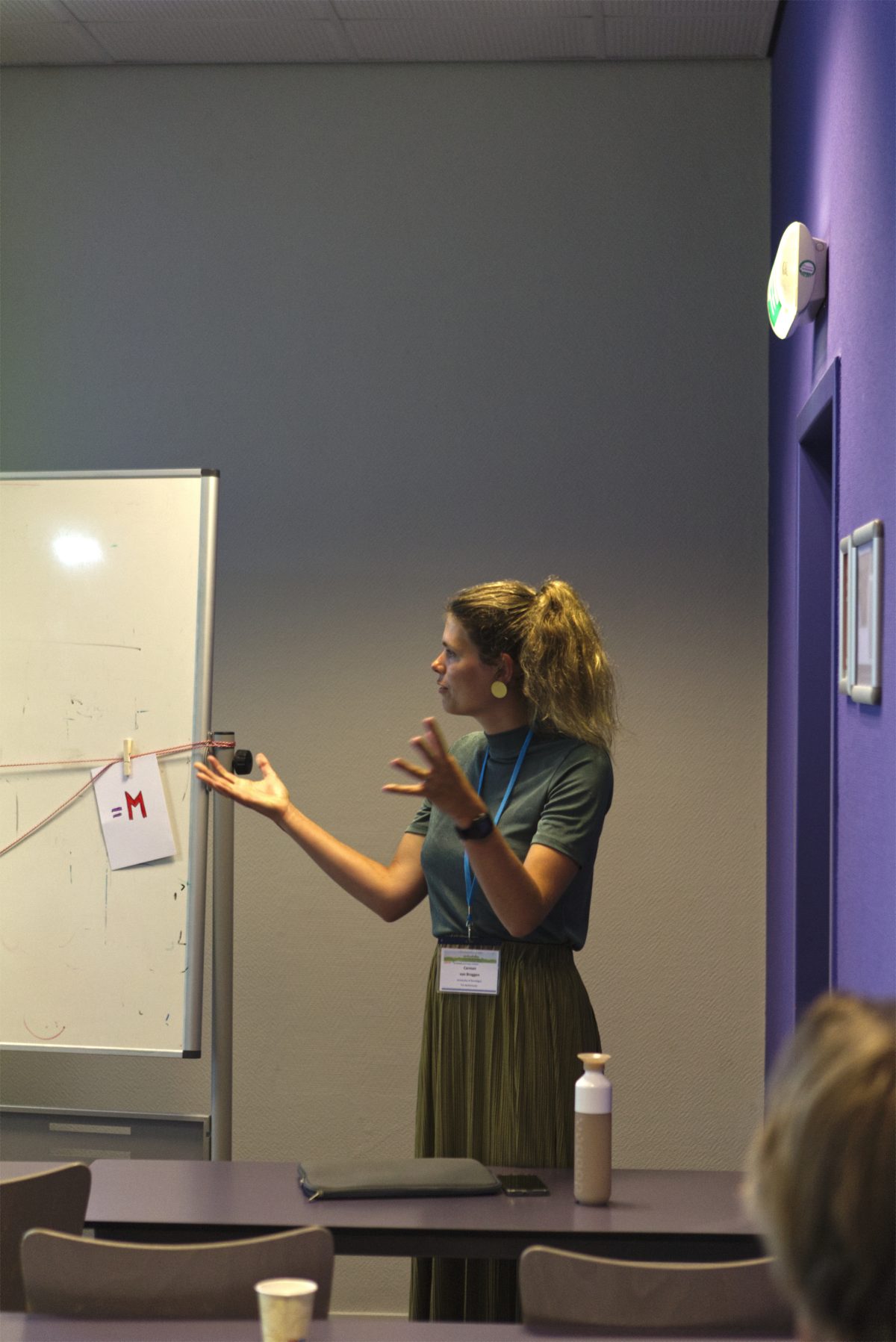 Carmen van Bruggen
Carmen van Bruggen
Working towards the promised land
In 2018 Leeuwarden was the European capital of culture. ‘Mienskip’ was an important issue in the creation of the program and therefore it was named Leeuwarden – Fryslân. Everyone was involved, because Fryslân needed a change to involve people in the region. So the organizers decided to that the program would be made by the entire community. This meant that everyone could upload a project and be part of the programming. It resulted in sixty-five large and over seven hundred ‘mienskip’ projects. Working towards a better world became a main theme and therefore the organization chose the label ‘Arcadia’. This stands for the promised land. One of the largest projects was ‘Giants of Royal de Luxe’, which was a coproduction with the city of Leeuwarden. Especially the volunteers and the visitors were important in co-creating the magical experience of the giants. Another example is the project ‘Under the Tower’ for which almost every village with a church organized an event. Local people took the initiative and artists joined in.
Developing a new game that you can use to let people connect. Because people invent the journey themselves it works better. Cake is part of the formula!
How to get from one to eleven thousand people?
How do you get from one person to eleven thousand people cooperating? At the moment they are developing a game to make this happen. In the game three ways to cooperate are incorporated: own (collective) initiative, co-creation and joint experience. Also they are taking the findings of two books into practice. The first one is Rozemarijn’s book ‘Compass for the journey’, which is about how you do cultural projects. Another helpful book was ‘Design for belonging’ by Susie Wise. This book is about building inclusion and collaboration in your community. Furthermore the game they develop is based upon interviews with makers of cultural projects and the hero’s journey, which is also known as the twelve steps of storytelling. Someone who has a call to action goes on a journey. The development process resulted in thirty five steps that help with creating a sense of belonging and connection. Every step in the game is an assignment.
A formula for creating a ‘mienskip’
This morning the attendees did one assignment: make a formula for creating a team, a group or a ‘mienskip’. They were divided into groups to cooperate and create a formula. In the groups the attendees talked about what each one of them needs to get connected. From a suitcase they received tools that are helpful in doing this. The attendees found out that sharing drinks and food, for example cake, is an important ingredient of the recipe. Other important elements are: creating memories together, getting to know each other, sense of purpose or urgency, dependency and having fun together. By working in small groups on the formula, people connect. Because you invent the formula on your own, it works better and you experience a sense of belonging within a very short time. So look for things you can do with a group, so everyone can connect. Connect to the ‘we’, to the world.
